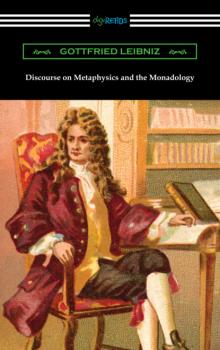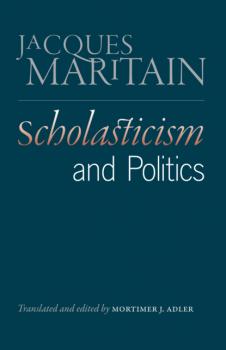Афоризмы и цитаты
Различные книги в жанре Афоризмы и цитатыIn Pursuit: Of Happiness and Good Government
Respected author, scholar, and columnist Charles Murray has long challenged accepted notions of public and social policy issues. In this volume, originally published in 1988, Murray presents a persuasive and practical argument that reconsiders commonly held beliefs of what constitutes success in social policy by examining the scope of government and its role in people’s pursuit of happiness.In Pursuit: Of Happiness and Good Government begins by examining James Madison’s statement: “A good government implies two things; first, fidelity to the object of government, which is the happiness of the people; secondly, a knowleEAe of the means by which that object can best be attained.” Murray exhibits a thoughtful, accessible writing style as he considers such basic, important questions as whether individual efforts or government reform should be responsible for dealing with society’s problems. Drawing from his minimalist-government viewpoint, Murray proposes that government not try to force happiness on the people with federal policies or programs but, rather, that it provide conditions that enable people to pursue happiness on their own.Murray also proposes that the pursuit of happiness be used as a framework for analyzing the efficacy of public policy, and he comes to the conclusion that Jeffersonian democracy is still the best way to run society, even today’s complex society.Charles Murray is the W. H. Brady Scholar at the American Enterprise Institute for Public Policy Research. He has written numerous books, including Coming Apart, Losing Ground, Real Education, and Human Accomplishment. He is perhaps best known for coauthoring the 1994 New York Times bestseller The Bell Curve with the late Richard J. Herrnstein. Please note: This title is available as an ebook for purchase on Amazon, Barnes and Noble, and iTunes.
Discourse on Metaphysics and the Monadology
Noted German polymath Gottfried Wilhelm von Leibniz was one of the most important philosophers of the Enlightenment era. A contemporary of Isaac Newton, Leibniz is today best remembered for independently developing a system of differential and integral calculus. As a philosopher he ranks as one of three great proponents of rationalism, along with Rene Descartes and Baruch Spinoza. Unpublished until the middle of the 19th century, Leibniz’s “Discourse on Metaphysics” is a philosophical work in which the author argues that “God is an absolutely perfect being” and therefore our world is the best possible one in which a perfect being could create. Also included in this volume is the “Monadology”. Written near the end of Leibniz’s life and published posthumously, the “Monadology” is a collection of elementary principles or “monads”, in which the philosopher seeks answers to the nature of reality and tries to address the problems that arise from mind-body dualism. Both admired and ridiculed by his contemporaries, Leibniz’s works remain as an important part of the canon of Enlightenment era philosophy. This edition follows the translation of George R. Montgomery.
The World as Will and Idea: Complete One Volume Edition
German philosopher Arthur Schopenhauer wrote a strong text to explain his belief system in “The World as Will and Idea”. Rather than viewing the world as a construct within itself, Schopenhauer argued that the world exists beyond the five senses. He believed that rather than seeing an object in its true form, we only see and understand our perception of it. His ideas are classified as post-Kantian philosophy, just one strand of thought amidst other thinkers such as Hegel and Heidegger. However, Schopenhauer is generally thought to follow Kant’s original ideas most closely. Still, the philosopher disagrees with Kant’s view of ethics, saying that inner experiences, driven by the Will, are the most significant part of the human experience. Born in the late 1700s, Schopenhauer was immersed in philosophy at a young age. By age 25, he published his doctoral dissertation “On the Fourfold Root of the Principle of Sufficient Reasoning”. In his most famous works, he primarily focused on the attainment of happiness. He believed that physical and emotional desires can never be satisfied, resulting in a painful human condition. Schopenhauer claimed that all actions are internally motivated by a desire to obtain pleasure, but that lasting happiness would remain unobtainable. “The World as Will and Idea” is widely hailed as Schopenhauer’s greatest work, as well as one of the most contemporarily-written philosophical texts of the nineteenth century. This edition collects together the complete text in a translation by R. B. Haldane and J. Kemp.
Selected Works
Born in 106 BC, Marcus Tullius Cicero was the member of a well connected and well to do family. His cognomen, a personal surname, is derived from the Latin word for chickpea. It is suggested that this name may have been chosen as a result of his family’s prosperity arising from the cultivation of chickpeas. His name suggests that despite being one the wealthiest men of his time he viewed himself he carried himself with humility. Educated in Latin and Greek, Cicero would rise to the highest ranks of Roman society, playing an important role as a Roman statesman in the final decades of the Roman Republic. Today he is remembered chiefly for his writings which give us great insight into both his time and his philosophy. Contained within this volume are some of his most important writings on oration, religion, and philosophy. Following the translations of C. D. Yonge, Walter Miller, and E. S. Shuckburgh, “Selected Works” will provide the student of ancient Rome a key insight into the life and time of one of its most important figures.
The Joys and Sorrows of Parenting
A playful gift book that explores the highs and lows of parenting in a series of compassionate, authentic and sometimes humorous essays. Being a parent can be one of the sources of our greatest joys. It is also intermittently the cause of some of our deepest sorrows. It is likely that we will spend at least some of the time in despair and confusion, wondering whether it really has to be so hard. Philosophy has, over the last 2,000 years, been a discipline committed to calm, kindness, perspective and a reduction of paranoia. It is one of the most useful sources of solace and humanity. The Joys and Sorrows of Parenting is made up of 26 small essays that aim to shed understanding and give consolation on the trials and pleasures of parenting. They will provoke insight, recognition and a far more forgiving, generous assessment of the challenges of parenthood. The Joys and Sorrows of Parenting promises us a gentle way of staying calm around one of the most arduous yet deeply fulfilling jobs in the world.
Considerations on the Principal Events of the French Revolution
Considerations on the Principal Events of the French Revolution was a winner in the Scholarly/Reference category at the Chicago Book Clinic’s 2009 Book & Media Show.Germaine de Staël’s voice, which Napoleon Bonaparte tried to silence by censorship and banishment, is a unique and important contribution to revolutionary historiography.Considerations on the Principal Events of the French Revolution, considered Madame de Staël’s magnum opus, became a classic of liberal thinking, making a deeply original contribution to an ongoing political and historical debate in early nineteenth-century France and Europe.Germaine de Staël (1766–1817) rose to fame as a novelist, critic, political thinker, sociologist of literature, and autobiographer.Aurelian Craiutu is Professor in the Department of Political Science at Indiana University, Bloomington.Please note: This title is available as an ebook for purchase on Amazon, Barnes and Noble, and iTunes.
Tocqueville’s Voyages
Tocqueville’s Voyages is a collection of newly written essays by some of the most well-known Tocquevillian scholars today. The essays in the first part of the volume explore the development of Tocqueville’s thought, his intellectual voyage, during his trip to America and while writing Democracy in America. The second part of the book focuses on the dissemination of Tocqueville’s ideas beyond the Franco-American context of 1835–1840 in places such as Argentina, Japan, and Eastern Europe.The articles and contributors are as follows:Part 1: Tocqueville as VoyagerHidden from View: Tocqueville’s Secrets Eduardo NollaTocqueville’s Voyages: To and From America? S. J. D. GreenDemocratic Dangers, Democratic Remedies, and the Democratic Character James T. SchleiferTocqueville’s Journey into America Jeremy JenningsAlexis de Tocqueville and the Two-Founding Thesis James W. CeaserTocqueville’s “New Political Science” Catherine H. ZuckertDemocratic Grandeur: How Tocqueville Constructed His New Moral Science in America Alan S. KahanIntimations of Philosophy in Tocqueville’s “Democracy in America” Harvey C. MansfieldAn Undertow of Race Prejudice in the Current of Democratic Transformation: Tocqueville on the “Three Races” of North America Barbara AllenTocqueville’s Reflections on a Democratic Paradox Jean-Louis BenoîtOut of Africa: Tocqueville’s Imperial Voyages Cheryl B. WelchPart 2: Tocquevillian VoyagesTocqueville’s Voyage of Discovery from Sicily to America Filippo SabettiTocqueville, Argentina, and the Search for a Point of Departure Enrique AguilarTocqueville and Eastern Europe Aurelian CraiutuTocqueville and “Democracy in Japan” Reiji MatsumotoThis book gives readers unprecedented access to the development of Tocqueville’s thought as seen through the eyes of some of today’s most preeminent Tocquevillian scholars. Not only do the essays shed fresh light on the ideas in Democracy in America, but they also invite readers to reassess previous interpretations of Tocqueville’s great work and to consider its continued relevance to the world today.Christine Dunn Henderson is a Senior Fellow at Liberty Fund.Please note: This title is available as an ebook for purchase on Amazon, Barnes and Noble, and iTunes.
An Inquiry into the Original of Our Ideas of Beauty and Virtue
Francis Hutcheson’s first book, An Inquiry into the Original of Our Ideas of Beauty and Virtue, was published in 1725, when its author was only thirty-one, and went through four editions during his lifetime. This seminal text of the Scottish Enlightenment is now available for the first time in a variorum edition based on the 1726 edition.The Inquiry was written as a critical response to the work of Bernard Mandeville and as a defense of the ideas of Anthony Ashley Cooper, Lord Shaftesbury. It consists of two treatises exploring our aesthetic and our moral abilities.Francis Hutcheson (1694–1746) was educated at the University of Glasgow, where he assumed the chair of moral philosophy in 1729.Wolfgang Leidhold is Professor of Political Science at the University of Cologne. Please note: This title is available as an ebook for purchase on Amazon, Barnes and Noble, and iTunes.
Scholasticism and Politics
Scholasticism and Politics, first published in 1940, is a collection of nine lectures Maritain delivered at the University of Chicago in 1938. Maritain championed the cause of what he called personalist democracy—a regime committed to popular sovereignty, constitutionalism, limited government, and individual freedom. He believed a personalist democracy offered the modern world the possibility of a political order most in keeping with the demands of human dignity, Christian values, and the common good.Jacques Maritain (1882–1973) was a French political thinker and philosopher and is widely recognized as one of the most influential interpreters of Thomistic thought to modern culture. Please note: This title is available as an ebook for purchase on Amazon, Barnes and Noble, and iTunes.
My Thoughts
Charles-Louis de Secondat, Baron of La Brède and of Montesquieu
My Thoughts provides a unique window into the mind of one of the undisputed pioneers of modern thought, the author of the 1748 classic, The Spirit of the Laws. From the publication in 1721 of his first masterpiece, Persian Letters, until his death in 1755, Montesquieu maintained notebooks in which he wrote and dictated ideas on a wide variety of topics. Some of the contents are early drafts of passages that Montesquieu eventually placed in his published works; others are outlines or early versions of projected works that were ultimately lost, unfinished, or abandoned. These notebooks provide important insights into his views on a broad range of topics, including morality, religion, history, law, economics, finance, science, art, and constitutional liberty.Montesquieu called these notebooks Mes Pensées (My Thoughts), and they appear in their entirety in English for the first time in this Liberty Fund edition.Editor and translator Henry C. Clark provides readers with translations of most of the footnotes contained in the 1991 French edition by Louis Desgraves, while adding new notes, a bibliography, and other aids to understanding the text and translation. These features provide the frame for a revealing portrait of one of the most influential figures of the eighteenth century.Henry C. Clark is a Visiting Professor in the Political Economy Project at Dartmouth College. He has written two books and numerous articles, mainly on the French and Scottish Enlightenments.Please note: This title is available as an ebook for purchase on Amazon, Barnes and Noble, and iTunes.









